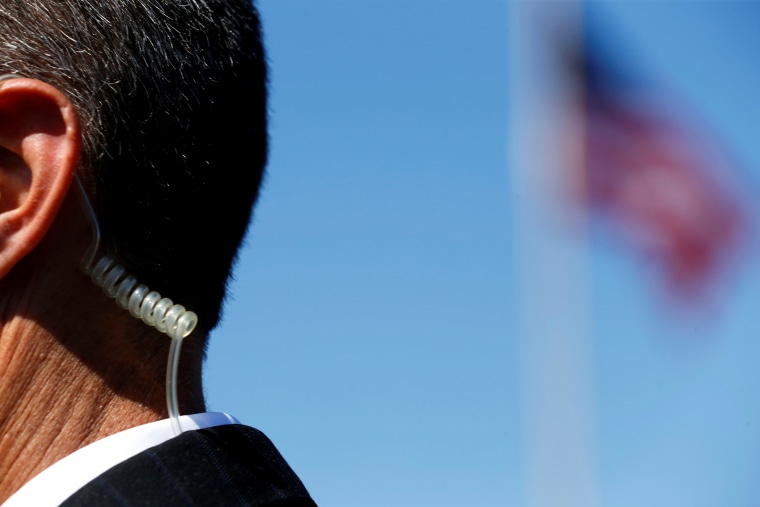A couple of years ago, the U.S. Secret Service struggled with a series of damaging controversies, including some important security breakdowns, prompting a congressional investigation and a bipartisan report about an "agency in crisis." Among other things, lawmakers identified budget cuts as one of the "primary causes" of the agency's difficulties.
And while the Secret Service has tried to turn things around since the release of that report, the agency is now facing another daunting challenge: Donald Trump's presidency.
The relationship between the Secret Service and the Republican president's team has already faced some difficulties. A leading Trump attorney, for example, tried to blame the agency for last year's infamous meeting in Trump Tower with a Kremlin-linked attorney, prompting the Secret Service to make a rare entry into a political debate in order to defend the agents' actions. That was soon followed by a leasing dispute between the agency and the New York building the president still owns.
But USA Today goes a step further this morning, highlighting a different kind of problem.
The Secret Service can no longer pay hundreds of agents it needs to carry out an expanded protective mission -- in large part due to the sheer size of President Trump's family and efforts necessary to secure their multiple residences up and down the East Coast.Secret Service Director Randolph "Tex'' Alles, in an interview with USA TODAY, said more than 1,000 agents have already hit the federally mandated caps for salary and overtime allowances that were meant to last the entire year.The agency has faced a crushing workload since the height of the contentious election season, and it has not relented in the first seven months of the administration. Agents must protect Trump -- who has traveled almost every weekend to his properties in Florida, New Jersey and Virginia -- and his adult children whose business trips and vacations have taken them across the country and overseas.
There are currently 42 protectees -- up from 31 in the Obama era -- including 18 members of the Trump family.
USA Today's report added that even if Congress intervenes with additional funds, "about 130 veteran agents would not be fully compensated for hundreds of hours already amassed."
And while the agency hoped the burdens would ease after Inauguration Day, "the president's frequent weekend trips" have contributed to a situation in which the Secret Service has been overwhelmed.
Looking ahead, there appears to be bipartisan support for additional investments, but as Congress tackles this, it'd be helpful to get an accounting of just how much money Trump is charging the agency. USA Today's article noted that Secret Service "has spent some $60,000 on golf cart rentals alone this year to protect Trump at both Mar-a-Lago and Bedminster" -- resorts that the president owns and profits from.
In other words, we're left with a bizarre dynamic in which the Secret Service is indirectly paying Trump while also protecting him and his family. Perhaps the White House could offer additional details on just how much Trump-owned entities are charging the financially stretched agency?
